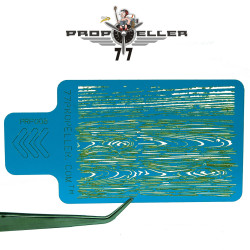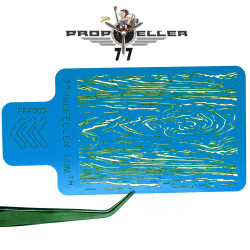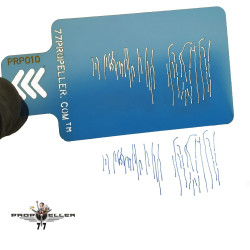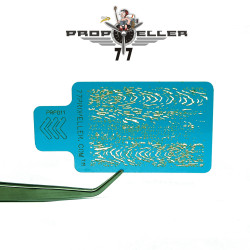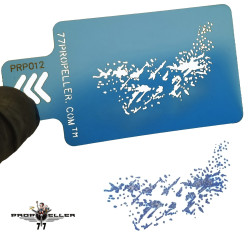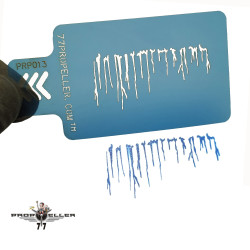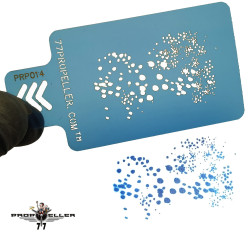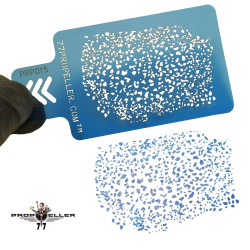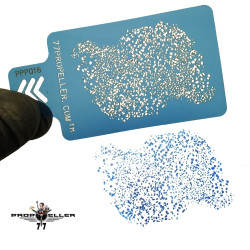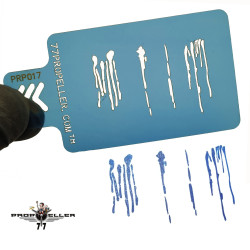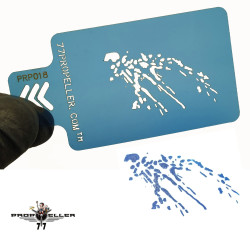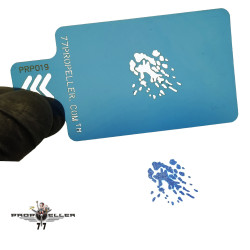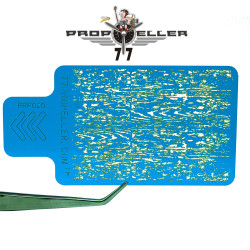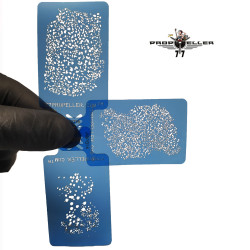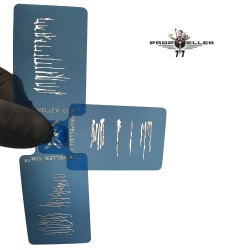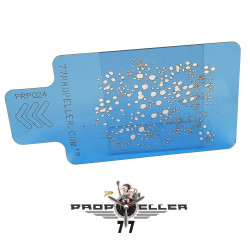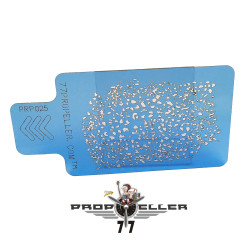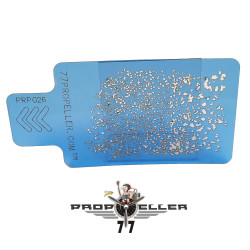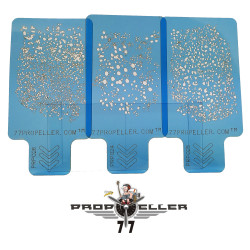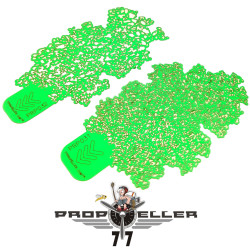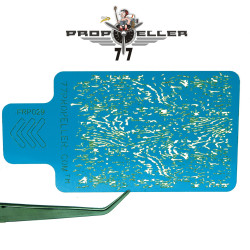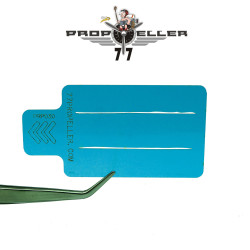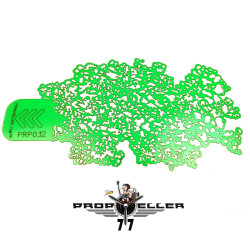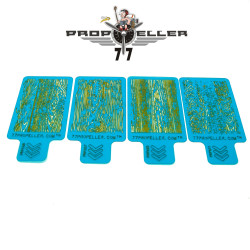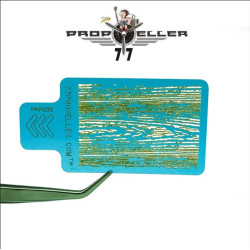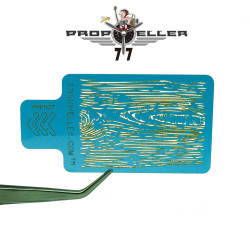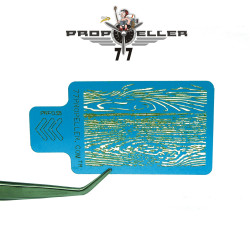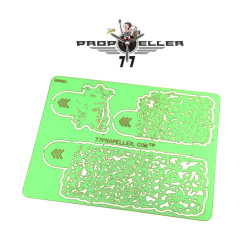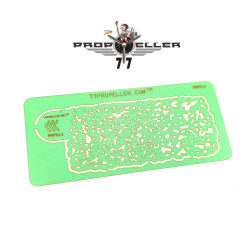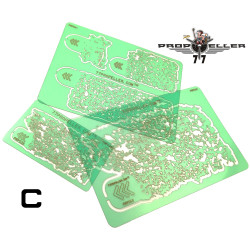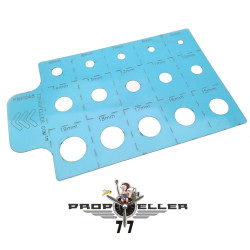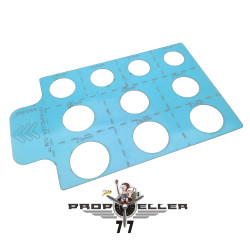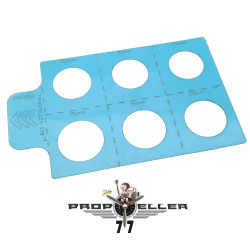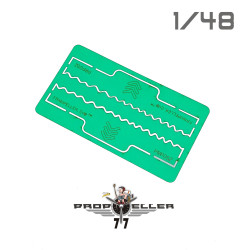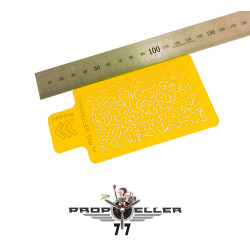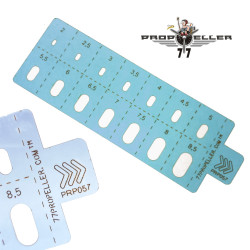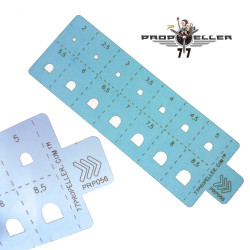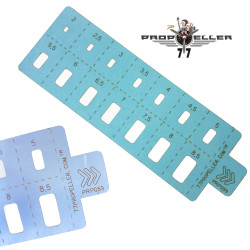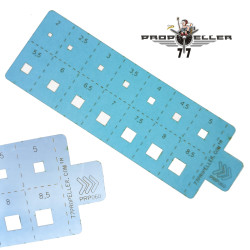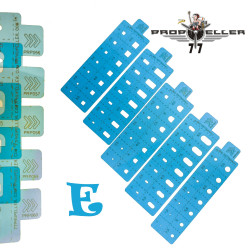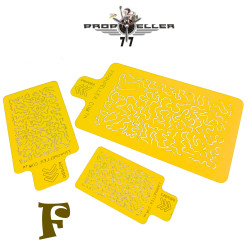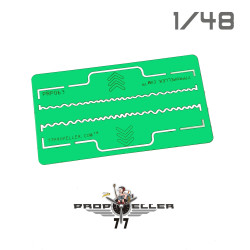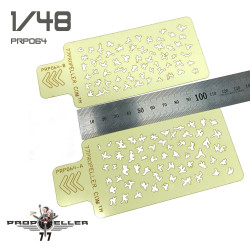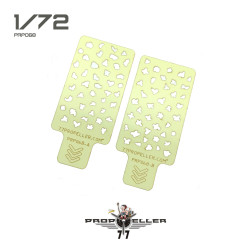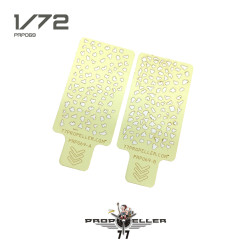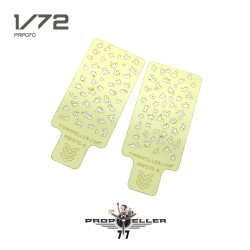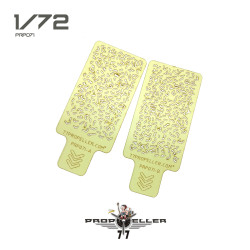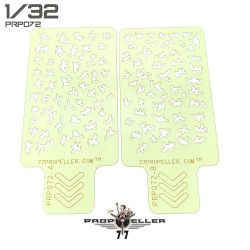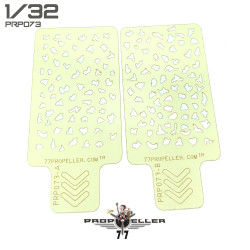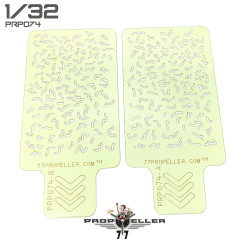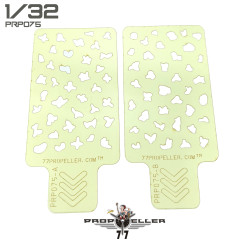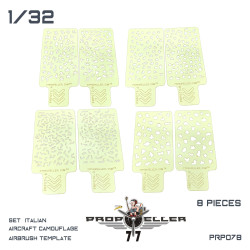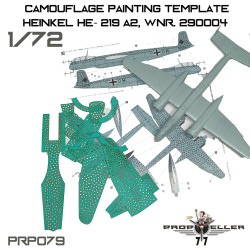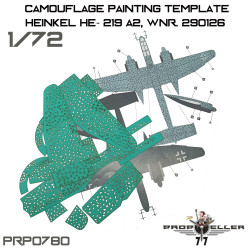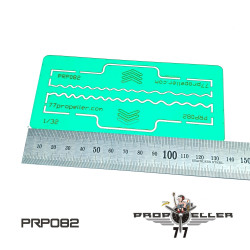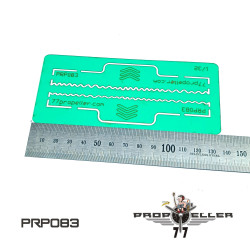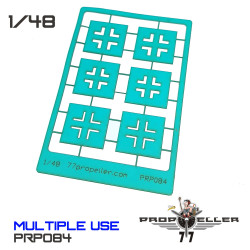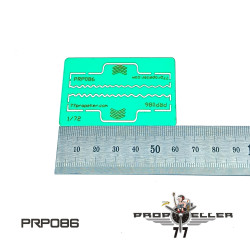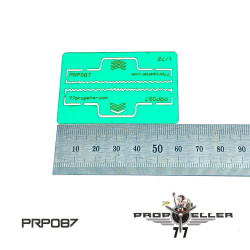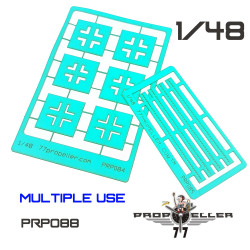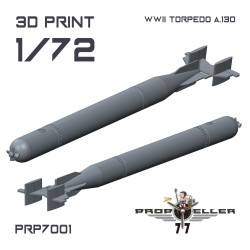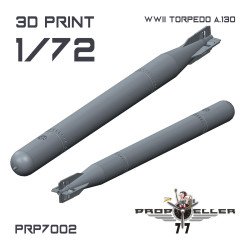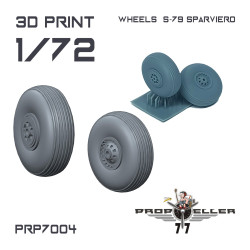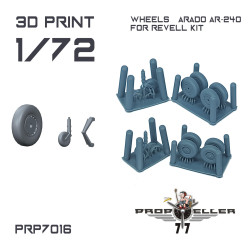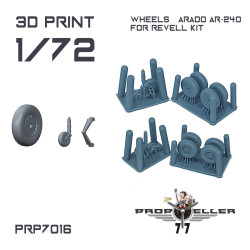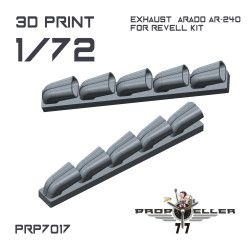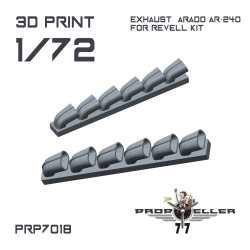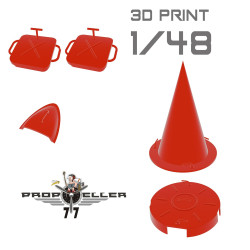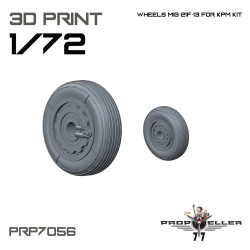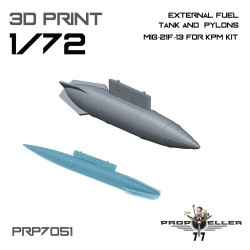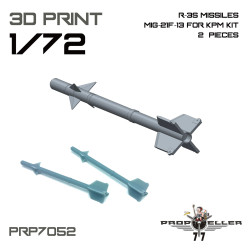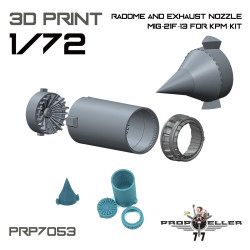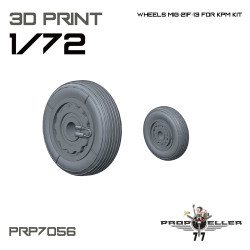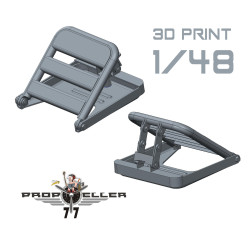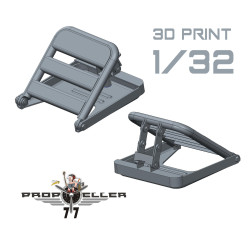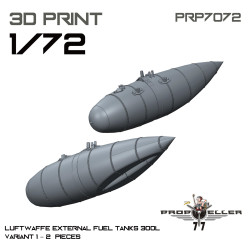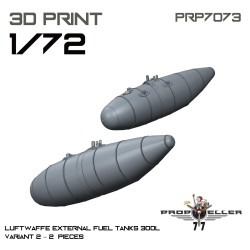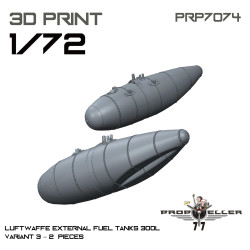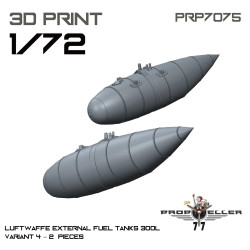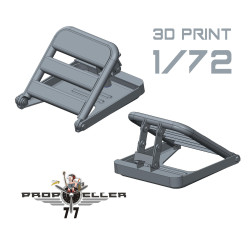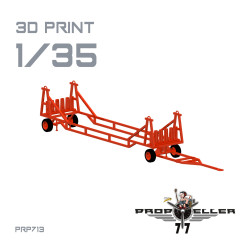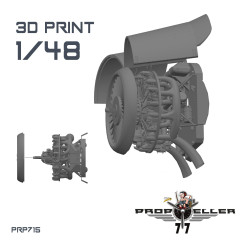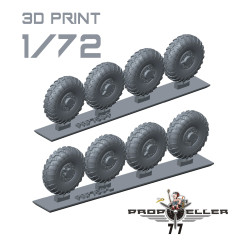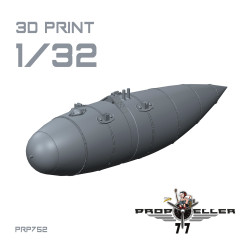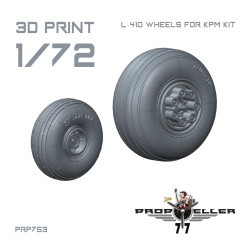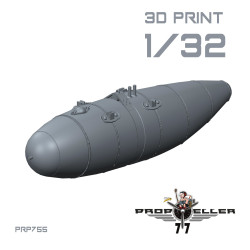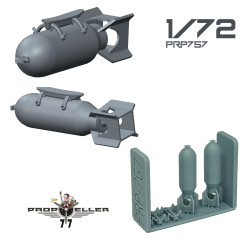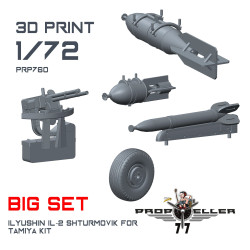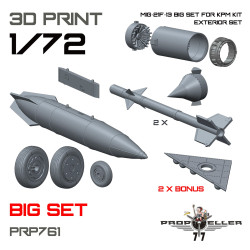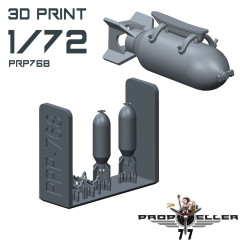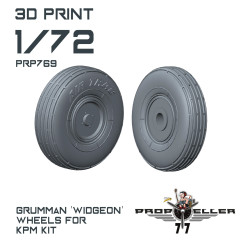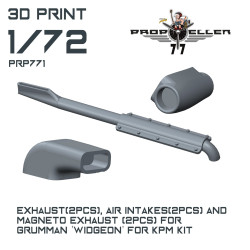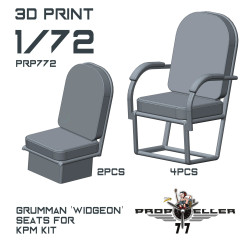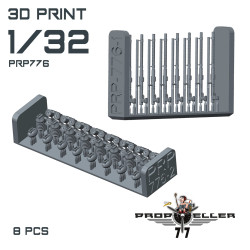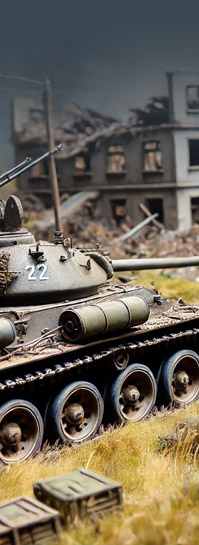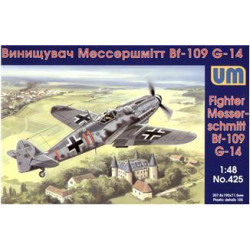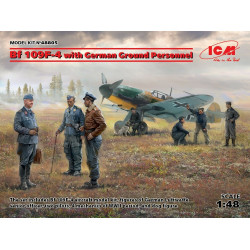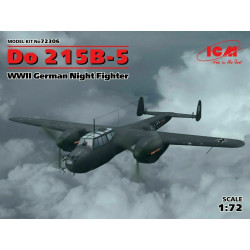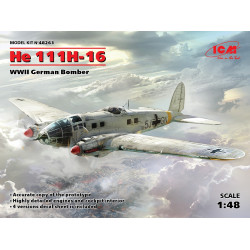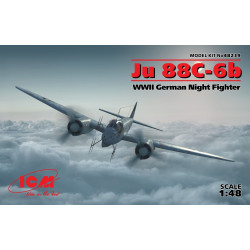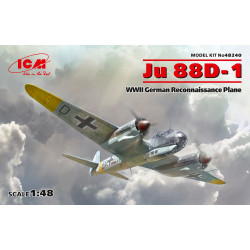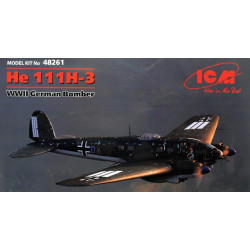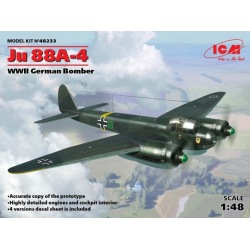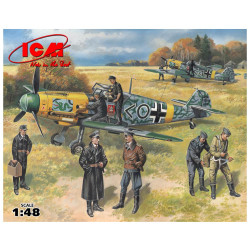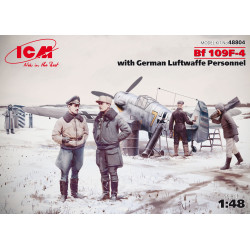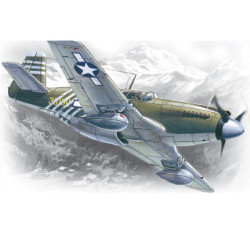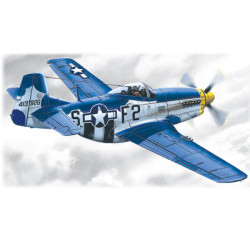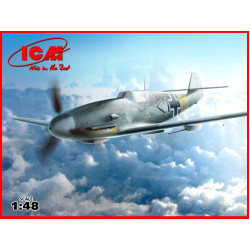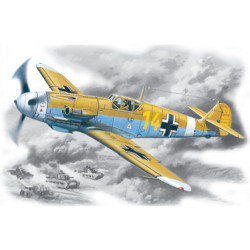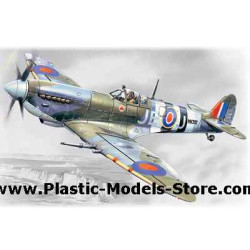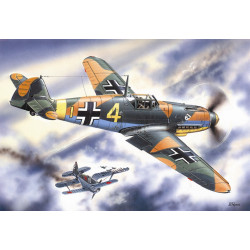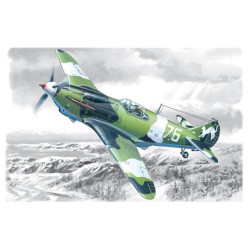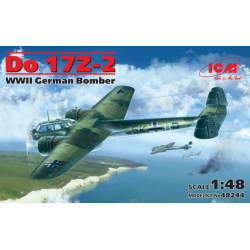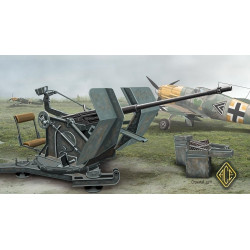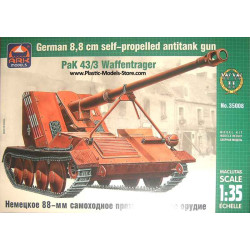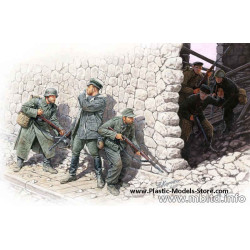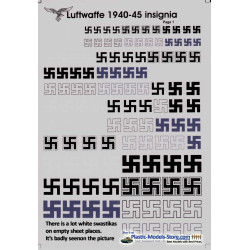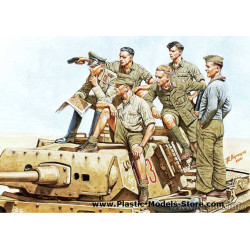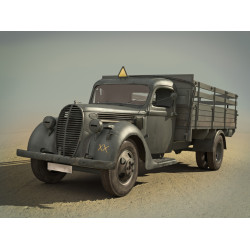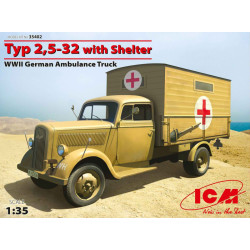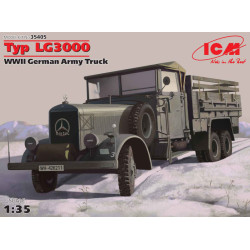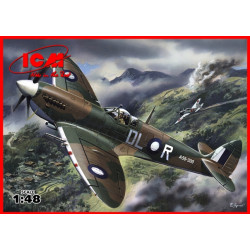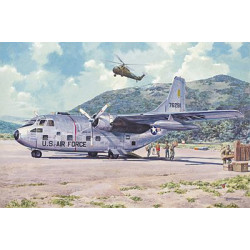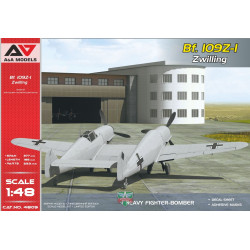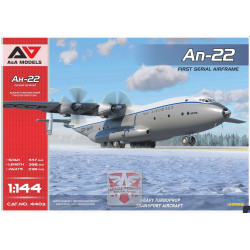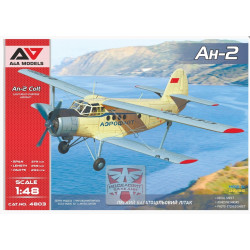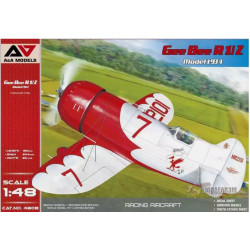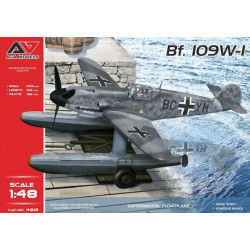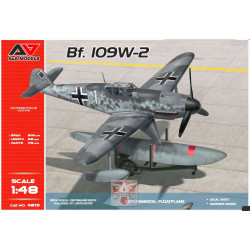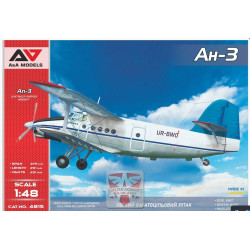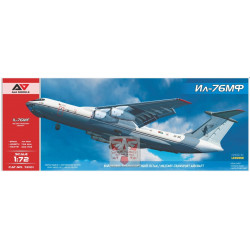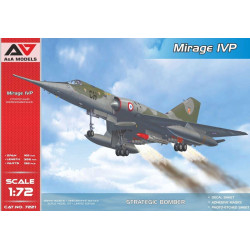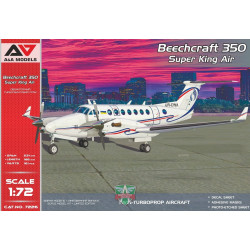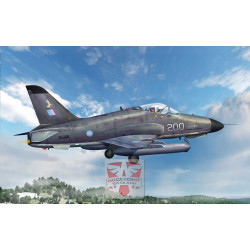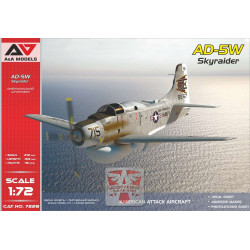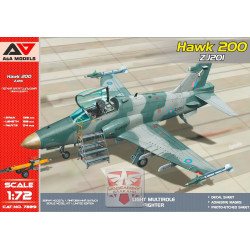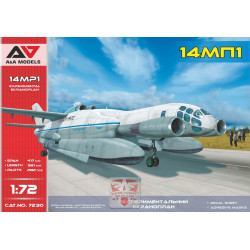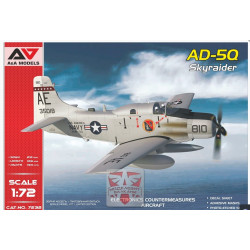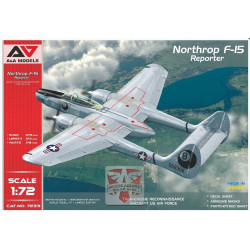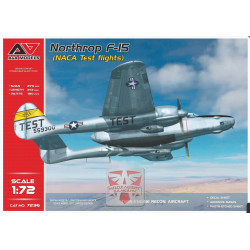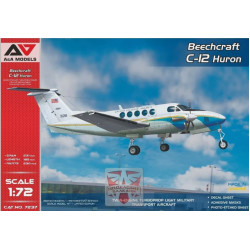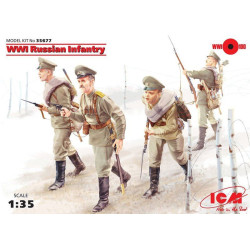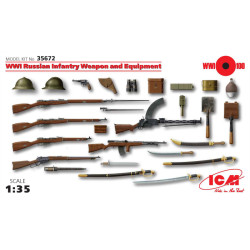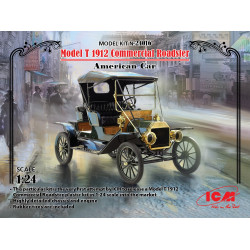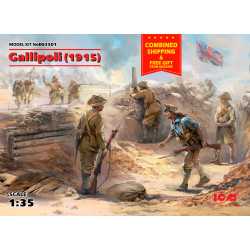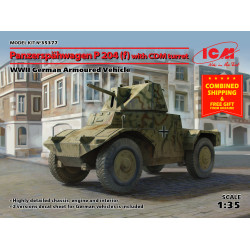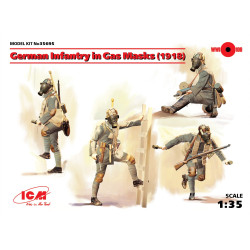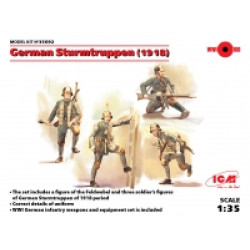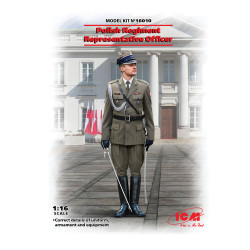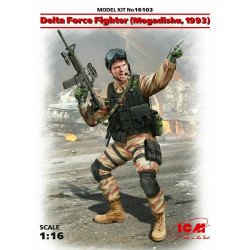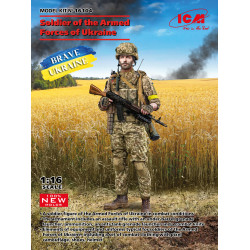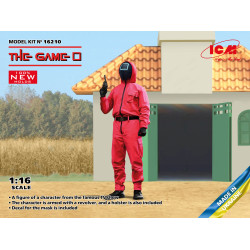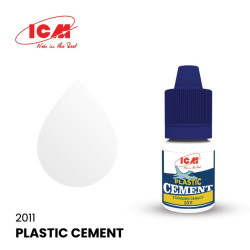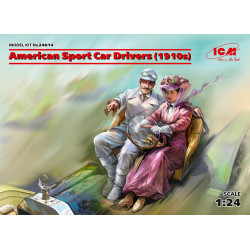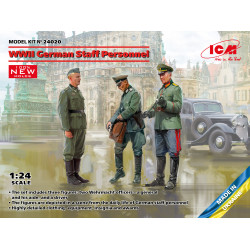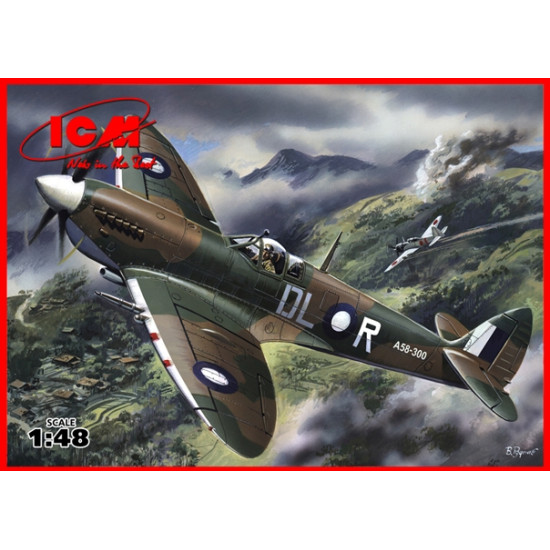
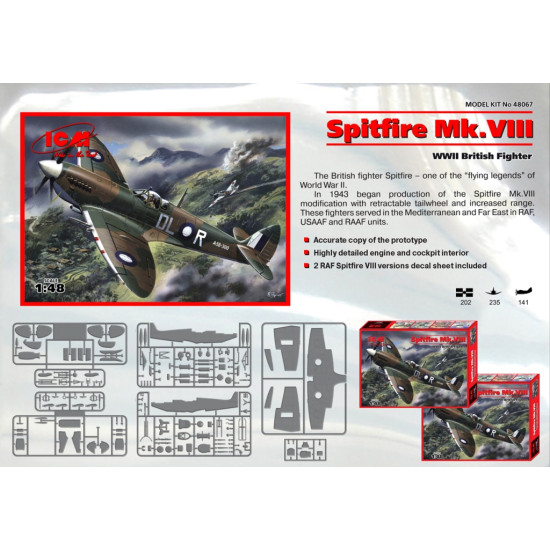


Spitfire Mk. VIII - WWII British Fighter
1/48 military aircraft fighter scale plastic model kit
ICM 48067 Fighter
High-quality details.
Manufacturer: ICM Models (Ukraine)
Scale: 1/48
Material: Plastic
Paint: Unpainted, Unassembled, Kit do not contain paints and glue.
Condition: New in Box
The British Supermarine Spitfire was facing several challenges by mid-1942. The debut of the formidable Focke-Wulf Fw 190 in late 1941 had caused problems for RAF fighter squadrons flying the latest Spitfire Mk Vb. By this time Rolls-Royce engineers were already working on a new version of theMerlin incorporating two-stage superchargers; the combination of the improved Merlins and the Spitfire Mk VC airframe in a "stop-gap" design allowed the RAF to combat the Fw 190 on equal terms. In a second stream of development Supermarine was working on an improved, reinforced Spitfire airframe which incorporated several new features and was designed specifically for the Merlin 60 and 70 series engines. This new airframe later formed the basis for theRolls-Royce Griffon powered Spitfires.
This article presents a history of the Spitfire powered by two-stage engine variants and also describes some of the "drawing board" projects and experimental Spitfires. The Griffon powered variants are described in a separate article.
Mk VIII (type 360)
Spitfire Mk VIII
The Mk VIII was an adaptation of the Mk VII without the pressurised cabin, and was intended to become the main production model of the Spitfire. When the "interim" Mk IX proved itself to be adequate for the RAF's needs it was decided to utilise the shadow factory at Castle Bromwich to produce that version only: the Mk VIII Spitfires were all built by Supermarine.
Apart from the lack of pressurisation, the Mk VIII differed little from the Mk VII. Some early production models had extended wingtips but the majority were fitted with the standard version; according to Supermarine's Chief Test pilot Jeffrey Quill "When I am asked which mark of Spitfire I consider the best from the flying point of view, I usually reply 'The Mark VIII with standard wingtips.' I hated the extended wingtips...They were of no practical value to the Mark VIII and simply reduced the aileron response and the rate of roll." There were three sub-variants for low altitude (LF Mk VIII), medium altitude (F Mk VIII) and high altitude (HF Mk VIII) which were powered respectively by the Merlin 66, Merlin 63 and Merlin 70 engines.[23]
The F Mk VIII's top speed was 408 mph (657 km/h) at 25,000 ft (404 mph for the LF.Mk VIII at 21,000 ft (6,400 m) and 416 mph (669 km/h) for the HF Mk VIII at 26,500 ft), with a service ceiling of 43,000 ft (41,500 ft for the LF Mk VIII and 44,000 ft (13,000 m) for the HF Mk VIII). The two main tanks were given an extra 11 gal for a total of 96 gal which, along with the wing tanks, allowed the fighter to fly for a maximum distance of 660 miles (1,060 km) with a full internal fuel load and 1,180 miles (1,900 km) with a full internal load and a 90 gal drop tank. Provision was made to allow the Mk VIII to carry a single "slipper" drop tank of 30, 90 or 170 gal capacity. With a 170 gal tank, the aeroplane could fly over 1,500 miles (2,400 km). When carrying the 90 or 175 gal tank the aircraft was restricted, once airborne and at cruising altitude, to straight and level flight[6] A maximum external bomb load of 1,000 pounds (1 × 500 lb (230 kg) bomb attached to the centre bomb-rack plus 2 × 250 lb (110 kg) bombs, one under each wing) could be carried.
A Mk VIII JF299 was used to experiment with the use of a new cut-back rear fuselage and a "tear-drop" canopy. This was intended to aid pilot visibility; many Spitfire pilots who were shot down were done so by enemies who approached in the aircraft's blind spot. In trials, the new hood design was found to bring about great improvements to all-round visibility and, with several modifications, was standardised on later Spitfires.
This variant served almost exclusively overseas in the Mediterranean, with both the Desert Air Force and the USAAF, in the Pacific, with the Royal Australian Air Force and with the RAF in the China-Burma-India theatre. After the Mk IX and Mk V, the Mk VIII was the third most numerous operational variant with 1,658 examples
Spitfire
A restored Supermarine Spitfire VIII, A58-758, in the colours and markings of Wg. Cdr Bobby Gibbes of 80 Wing RAAF, based on Morotai in 1945.
Role
Fighter / Photo-reconnaissance
Manufacturer
Supermarine
Designer
Joseph Smith
First flight
September 1941 (Mk III with Merlin 61)
Introduction
June 1942 (Mk IX)
Retired
1955, RAF
Primary user
Royal Air Force
Produced
1942–1945
Number built
8,996 (20,346 total)
Variants
Seafire, Spiteful, Seafang
| General Product Info | |
| Material | Plastic |
| Scale | 1/48 |
| Type | Fighter / Interceptor |
We have the lowest worldwide shipping. And it's totally simple.
EUROPE, USA, CANADA TURKEY, ISRAEL, EGYPT, UE CHINA, JAPAN, HK, S.KOREA | AU NZ MX South America, Asia | |
| Order weight up to 0.22kg or 0.48lb | US$ 8.90 | US$ 8.90 |
| Order weight up to 0.44kg or 0.97lb | US$ 13.95 | US$ 17.90 |
| Order weight over 0.44kg or 0.97lb | US$ 19.99 | US$ 29.99 |
| Order total over $150 | FREE | PROMO US$ 19.99 |
Shipping to some countries not qualifies for the free shipping option but costs not over $29.99 for any sized order. Sorry for that, your location is too far.
- Stock: Out Of Stock
- Model: ICM48067
- Weight: 0.51lb
- DATE ADDED: 27/02/2014
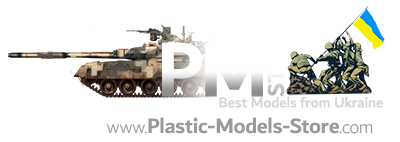
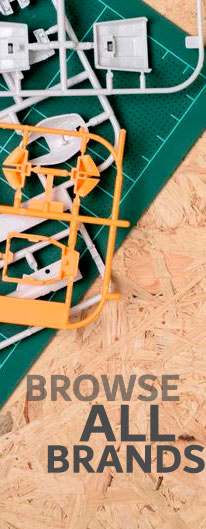
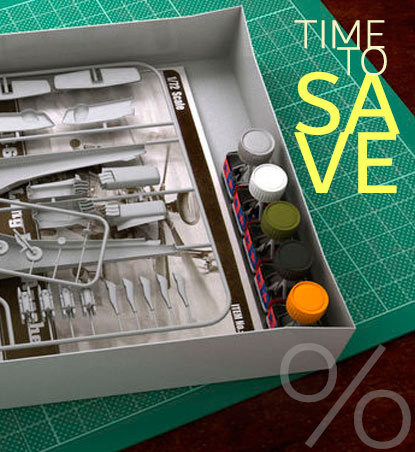
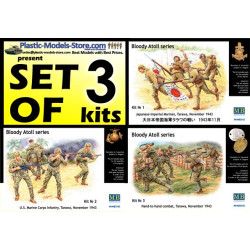
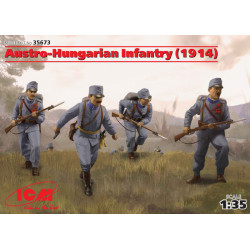
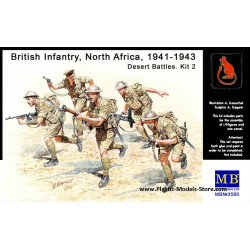
-250x250w.jpg)
